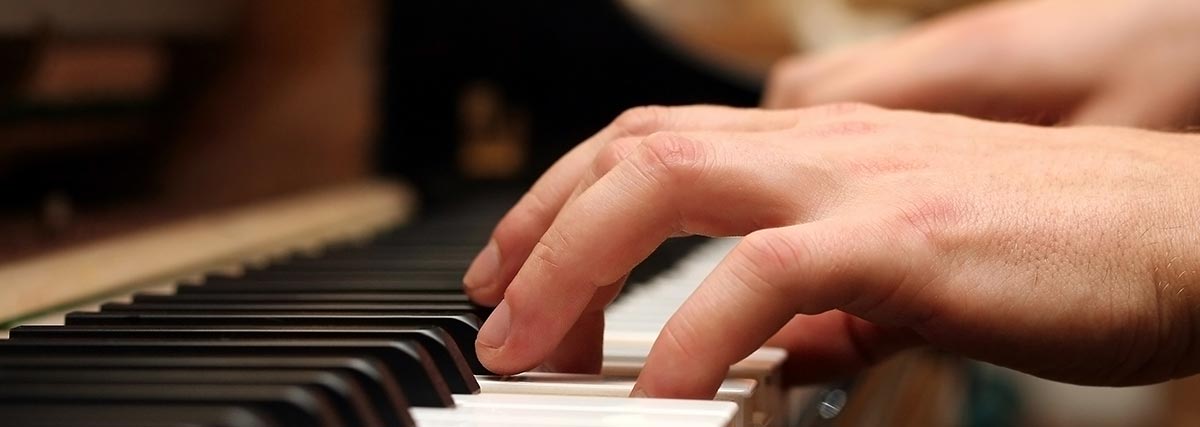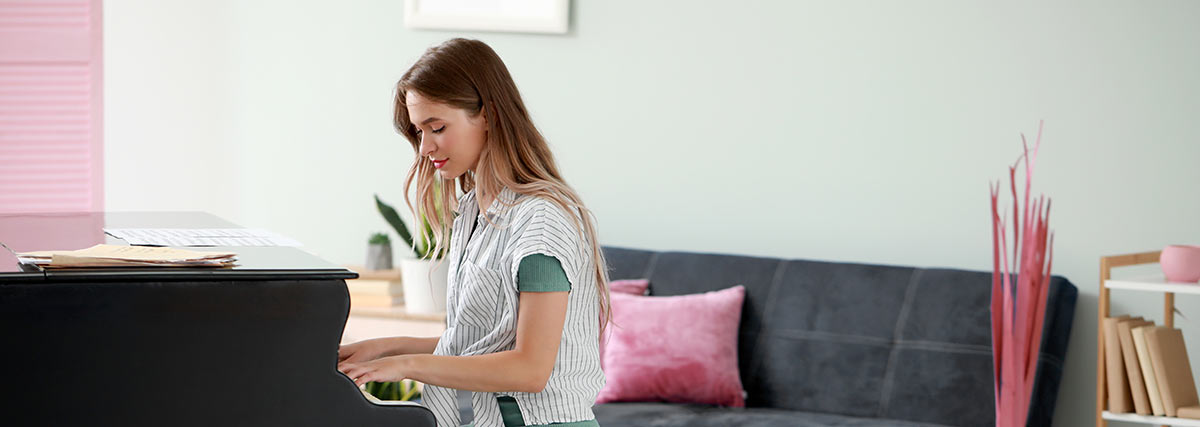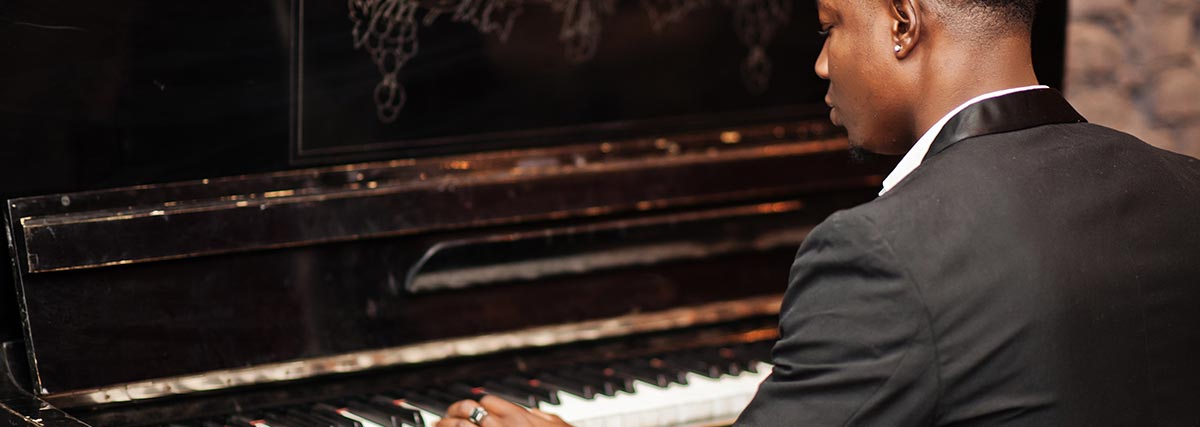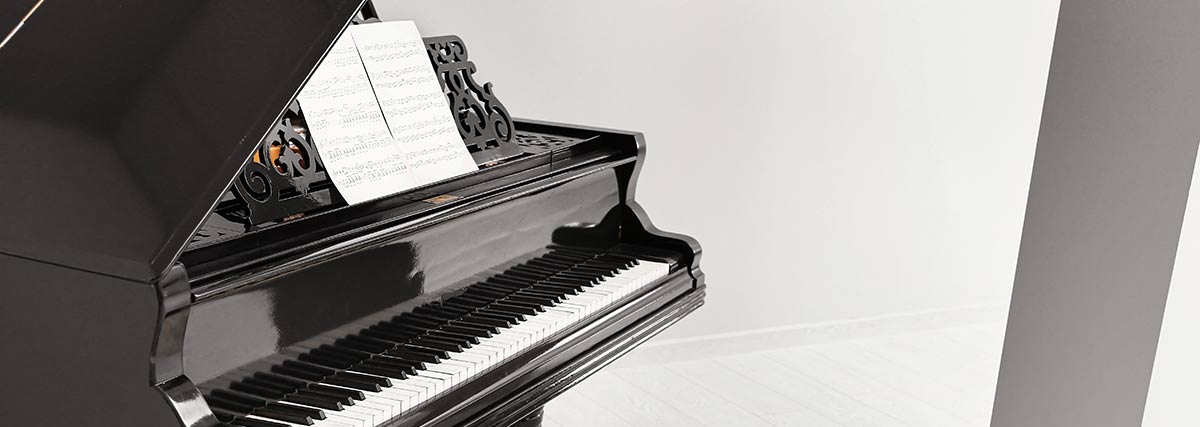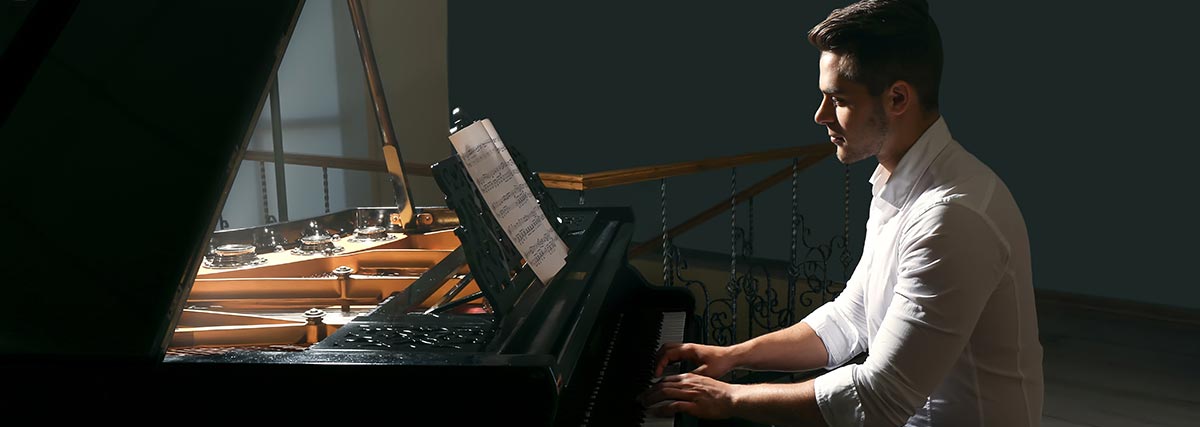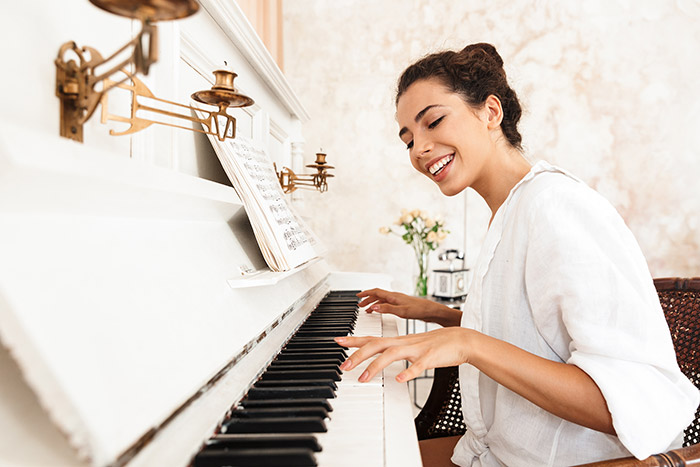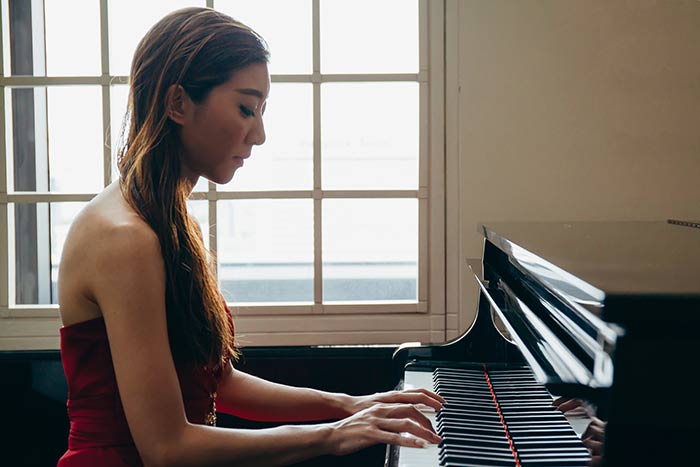Learning how to play the piano is one of the most fulfilling skills that any human being can acquire. That is why a lot of adults still want to learn it despite their age. Some have learned it during their younger years, and some have no background knowledge at all. Learning the piano does not have to happen at a certain age. It can be learned at whatever stage you may be in life.
People often find learning the piano challenging because they don’t see their results fast. They then have the tendency to give up quickly. Piano playing takes time to learn. It does not happen overnight. There are a lot of factors when it comes to knowing how fast you can learn to play a certain song or piece. Learning the piano is actually easy if you know how to practise effectively and efficiently.
If you are wondering what you should do to make your piano learning better even if you have little or no background knowledge with the instrument, you are in the right place. Practising the piano does not have to be complicated for adult beginners. We will be sharing tips on how to make your piano practise more efficient.
Begin With Warm Up Exercises
Some piano learners, even advanced ones, sometimes forget how vital it is to include warm ups in piano practise. Starting your practise with warm ups prepares your body and mind to perform in the best state because warming up increases blood circulation through your fingers, hands, and arms up to your shoulder which improves overall performance in piano playing. Doing warm ups on the piano not only prepares the body and mind to perform better but also helps in strengthening the finger muscles.
Another benefit of warming up is that it lessens the probability of getting an injury from playing the instrument, as warming up increases blood flow to the muscles. It is in fact the best way to prevent any injuries. Piano playing is indeed like a sport, you need to condition yourself beforehand to achieve maximum performance and limit getting any kind of injury.
Slow Practise
Often, when a learner likes the piece or song that he or she is learning to play on the piano, there is a tendency for that learner to become too excited and his or her playing gets affected by becoming also exciting and fast. There is this mindset to perform the piece as it originally sounded because they are familiar with it.
When you study a new piece of music, regardless of your familiarity with it, it is best to learn it as slowly as possible so that every information of the piece will be absorbed thoroughly. When you read a piece slowly it gives your brain more time to digest and interpret it into actions. Learning new pieces takes time and you would want to be able to execute the music as accurately as possible.
Each Hand Practise
Practising with each hand may sound boring but when you are able to do so proficiently, you will be surprised by the results. Each hand practise is an excellent way to learn tricky passages. It gives you the advantage to learn and practise your hand to execute a passage by focusing on an individual hand. It enables you to give more attention to practise your hand and observe if it is playing correctly.
Another reason why each hand practise is highly recommended, is because our hands are not equally strong or skilled. For example, right handed people have weaker or less skilled left hands. By practising your less dominant hand separately, it will help in improving your hand independence and makes your hand coordination better.
Practising in Sections
Practising in sections is dividing a piece into smaller parts and practising them one by one. For example, instead of practising the whole page, you divide the page into several groups of measures and learn them part by part. It can be per line or system, or can even be a few measures. Being a piano learner, it is extremely important to know how to practise a piece of music in sections. It helps you to learn the piece thoroughly as you can pay attention to each detail that is written on the music sheet.
Many beginners take this method for granted because they tend to focus too much on trying to play a song or piece in one run which is not a good approach because it increases the chances of making mistakes due to a of lack of attention to small details.
Practise Regularly
One of the keys in learning a skill in the most efficient way is by practising it as often as possible because learning the piano is like training for a sport, the more often you practice, the better you become at it. Piano playing is a physical activity which involves using the muscles of our bodies. In order to improve the performance of our muscles, we need to train and practise them as regularly as possible to get used to a certain execution. This process is referred to as creating muscle memory. We repeatedly do a skill so that our bodies will get used to a certain movement.
Practising regularly also gives the advantage of improving the muscular strength of our hands and fingers. It is a good way to train and develop firm and strong fingers. Practising every day does not need to take plenty of hours, practising at least 30 minutes a day is good enough for adult beginners.
Getting better results from piano practise is more achievable than what most people think. Learning the instrument is fun and enjoyable, especially when you are learning from a professional piano instructor. Learning with an excellent piano teacher is the best way to progress efficiently because a piano teacher will be able to teach you according to your learning style.

